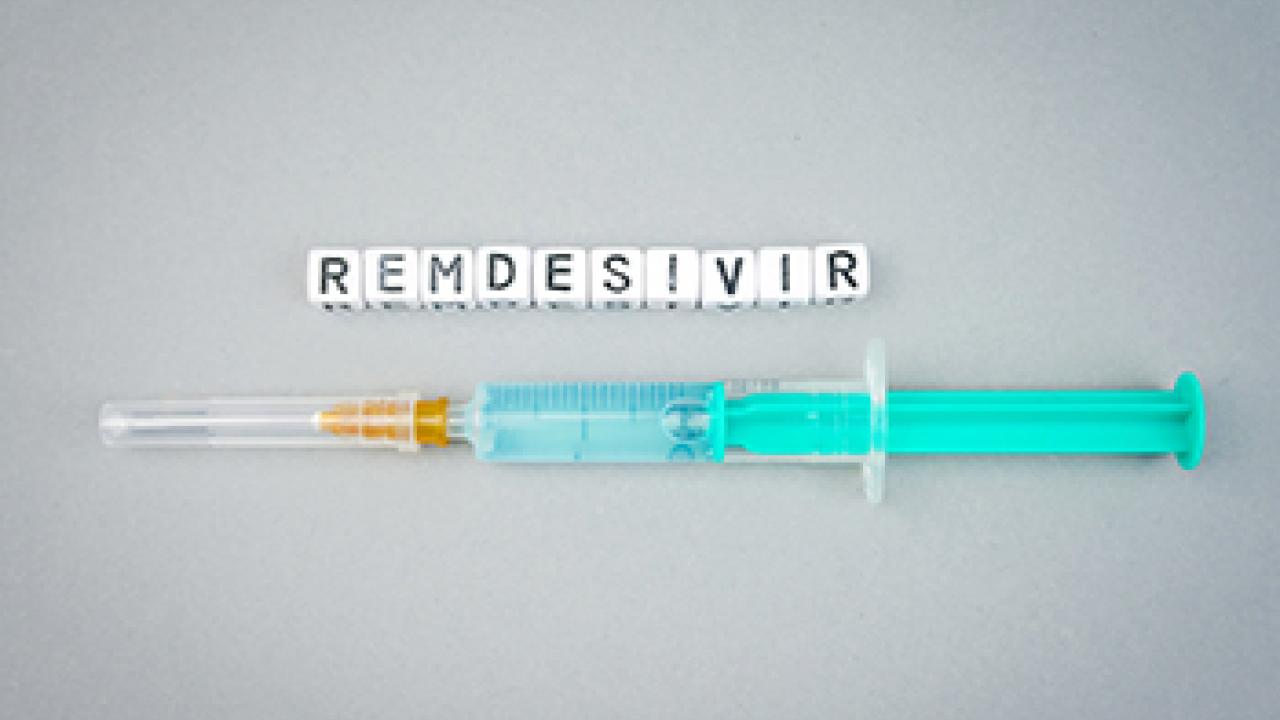
Remdesivir improved majority of patients hospitalized with severe COVID-19
(SACRAMENTO) — Nearly two thirds of severely ill patients hospitalized with COVID-19 who received remdesivir on a compassionate-use basis improved, with no new concerns about safety reported during the short clinical study.
That’s the preliminary results of the first clinical trial of the promising antiviral therapy remdesivir conducted at UC Davis Health and other hospitals in the U.S., Europe, Canada and Japan. The findings were published April 10 in the New England Journal of Medicine.
The study included 53 COVID-19 patients aged 23 to 82 years who were admitted to the hospitals from January 25 through March 7. Patients enrolled had blood oxygen saturation of 94% or less while breathing on their own or receiving oxygen support.
Each patient received a 10-day course of remdesivir, which included 200 mg administered intravenously on day 1, follow by 100 mg daily for the remaining 9 days of treatment. Clinicians provided other supportive therapy at their own discretion. The study includes data collected from patient follow-up care through March 30.
Nearly two thirds of patients (34 of 53) were on mechanical ventilators, including four who received extracorporeal membrane oxygenation (ECMO), a more advanced treatment. ECMO is a device that takes over the work of the lungs and heart, removing carbon dioxide and returning oxygenated blood to the body.
Eighteen days after receiving the first dose of remdesivir (median follow up), 68% of patients had improved oxygen levels. More than half of patients on ventilators (17 out of 30) were taken off the device, and nearly half of all patients (25 of 53) were discharged from the hospital. After 28 days follow up, 84% had been discharged or improved at least two points on a predefined six-point clinical scale.
Patients who required invasive breathing devices such as ventilators and ECMO improved less than those receiving oxygen support with a face mask, nasal mask or other noninvasive approach. Patients age 70 and older also had less improvement compared to patients younger than age 50.
Thirteen percent of patients (7 of 53) died after completing remdesivir treatment due to the severity of their disease. Risk of death was higher among patients age 70 and older and among those with higher blood levels of creatinine, a sign of impaired kidney function. Sixty percent of patients had an adverse event, including increased liver enzymes, diarrhea, rash, kidney impairment and low blood pressure. Adverse events were more common among those on mechanical breathing machines.
“While the overall results are promising, remdesivir is not yet licensed or approved anywhere globally,” said Stuart Cohen, who led the clinical investigation. He is chief of the Division of Infectious Diseases in the Department of Internal Medicine and director of Hospital Epidemiology and Infection Control at UC Davis Health.
“We conducted this study on a compassionate-use basis, which has inherent limitations,” Cohen said. “It had a small number of enrolled patients and relatively short follow-up timeline. It didn’t include a randomized control group and did not collect and compare amount of virus present before and after treatment with remdesivir and other clinical approaches. We await the results of larger randomized clinical trial that is underway to demonstrate the extent of efficacy and safety of remdesivir for the treatment of COVID-19.”
The study “Compassionate use of remsdesivir for patients with severe Covid-19” is available online. DOI: 10.1056/NEJMoa2007016.
More information about the larger randomized clinical trial using remdesivir is available on UC Davis Health’s online newsroom and the National Institutes of Health clinical trials website. Learn more about UC Davis Health at health.ucdavis.edu.
Media Coverage: Woodland Daily Democrat,